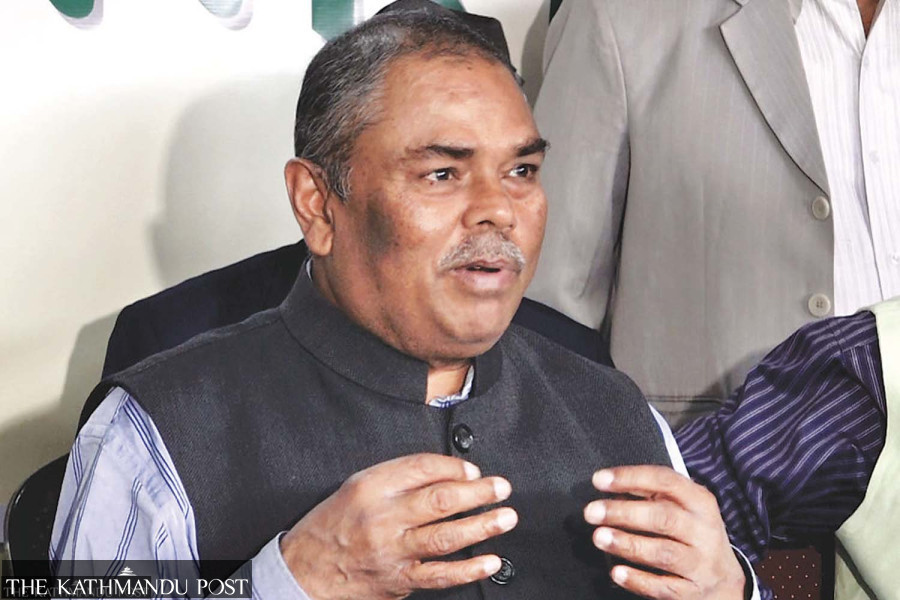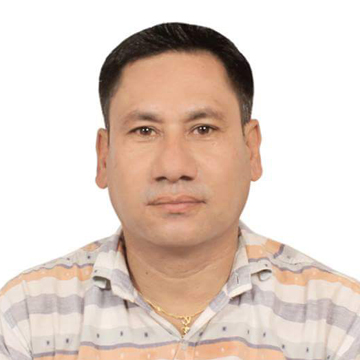National
Top court orders probe into 18-year old Gaur massacre
Senior politicians including Janata Samajbadi Party-Nepal chair Upendra Yadav are named as defendants in the case.
Shiva Puri & Durga Dulal
The Supreme Court has ordered a long-delayed investigation into the 2007 Gaur massacre, one of the most gruesome political violence in the country’s contemporary history.
Senior politicians including Janata Samajbadi Party-Nepal (JSP-N) chair Upendra Yadav have been named as defendants in the case.
Issuing a writ of mandamus on Monday, the apex court ordered Nepal Police and other authorities concerned to reopen the case file, which had been gathering dust in the Rautahat District Police Office for 18 years.
A joint bench of justices Til Prasad Shrestha and Nityananda Pandey asked why the case had been allowed to remain idle for so long. The order instructs police to either explain what investigative steps have been taken or to proceed immediately with fresh inquiries. The full text of the verdict has yet to be released.
The case, filed in April 2007, named 113 individuals, including senior politicians such as JSP-N chair Upendra Yadav—then chief of the Madhesi Janadhikar Forum (MJF)—as defendants in the massacre. Others named included former lawmaker Baban Singh and several Madhesi leaders.
With this ruling, law enforcement is now legally bound to pursue the long-stalled Gaur investigation.
On March 21, 2007, the then Yadav-led MJF and the Maoist party held rallies in Gaur, Rautahat at the same venue, the Rice Mills ground.
The MJF’s district chapter announced a mass assembly and mobilised supporters from multiple districts. Maoist-affiliated Madhesi Rastriya Mukti Morcha also decided to hold a rally at the same site, setting the stage for a confrontation.
Within hours, the rally site had turned into a battlefield. Some victims were beaten to death and their bodies dumped in drainage canals. Nepal Red Cross and police later recovered most of the corpses from sewers and nearby fields.
In total, 27 Maoists were killed. Another 53 were injured. Human rights observers, including the National Human Rights Commission (NHRC) and Insec, described the killings as “gruesome and inhuman”.
Since the incident, political narratives have diverged sharply. JSP-N chair Yadav has long argued that his party cadres acted in self-defense against Maoist aggression. Maoist leaders, on the other hand, claim the massacre was premeditated.
The Maoist leader Prabhu Sah, now chair of the Am Janata Party, who was then leading the Maoists in the district, insisted the massacre was orchestrated.
Yet for nearly two decades, political influence shielded those implicated from prosecution. Despite a case being registered against 113 individuals in April 2007, investigations stalled.
In the aftermath, the government formed a judicial inquiry commission led by Justice Hari Prasad Ghimire of the Patan Appellate Court. Survivors allege none of the subsequent authorities dared touch the politically sensitive case.
In January 2023, the NHRC released a detailed report labeling the Gaur massacre a “premeditated, intentional and cruel crime.”
The constitutional rights watchdog concluded that the killings of more than two dozen people were well orchestrated and leaders from both sides were aware of possible violence.
The NHRC recommended prosecution of those named in the first information report (FIR) and called for departmental action against officials who failed in their duties, including then police superintendents and chief district officers.
Despite the recommendations, there was no substantive progress in the case.
For the families of those killed, the past 18 years have been marked by frustration and despair. They received Rs1 million each as compensation from the state nine months after the killings, but no legal closure.
On May 21, 2023, victims including Tribhuvan Sah, who was injured in the attack, filed a writ petition at the Supreme Court, demanding action. Their petition named Rautahat police, the District Attorney’s Office, Police Headquarters, and the Home Ministry as defendants.
After initial hearings and delays, the case reached the bench of justices Shrestha and Pandey, who issued Monday’s mandamus.
“This is the first real step to justice,” said petitioner Sah. “We have struggled for years. We now believe we will finally see accountability.”
Raju Pariyar of ward 1 of Chandrapur Municipality who lost his sister, said, “The longer this drags on, the greater the chance of the evidence disappearing. The court order has given us new hope.”
Following the order, Madhesh Province Police chief DIG Uma Shankar Chaturvedi confirmed authorities will comply. “We will assess progress so far and lawfully resume the process,” he said.
JSP-N chair Yadav, who led the Madhesh uprising in 2007, remains a key leader in the Madhesh Province. His party has five seats in the House of Representatives and three seats in the National Assembly in the federal parliament. The government’s multiple attempts to pass bills in the upper house were foiled due to Yadav’s differences with the ruling parties. The party last month withdrew support to the KP Sharma Oli government.



 8.79°C Kathmandu
8.79°C Kathmandu
















